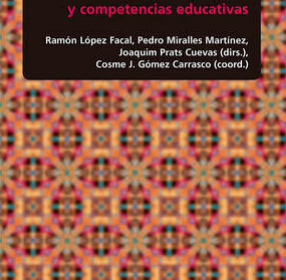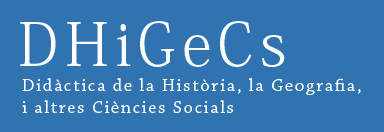New edition: ‘Enseñanza de la historia y competencias educativas’

Do not miss the revised and augmented edition of Enseñanza de la historia y competencias educativas, which discloses research results on the teaching of history and the development of educational competencies. The volume, which has been coordinated by Cosme Gómez Carrasco (University of Múrcia), has the broad participation of members of the research group DHiGeCs (University of Barcelona), both in
Read more








